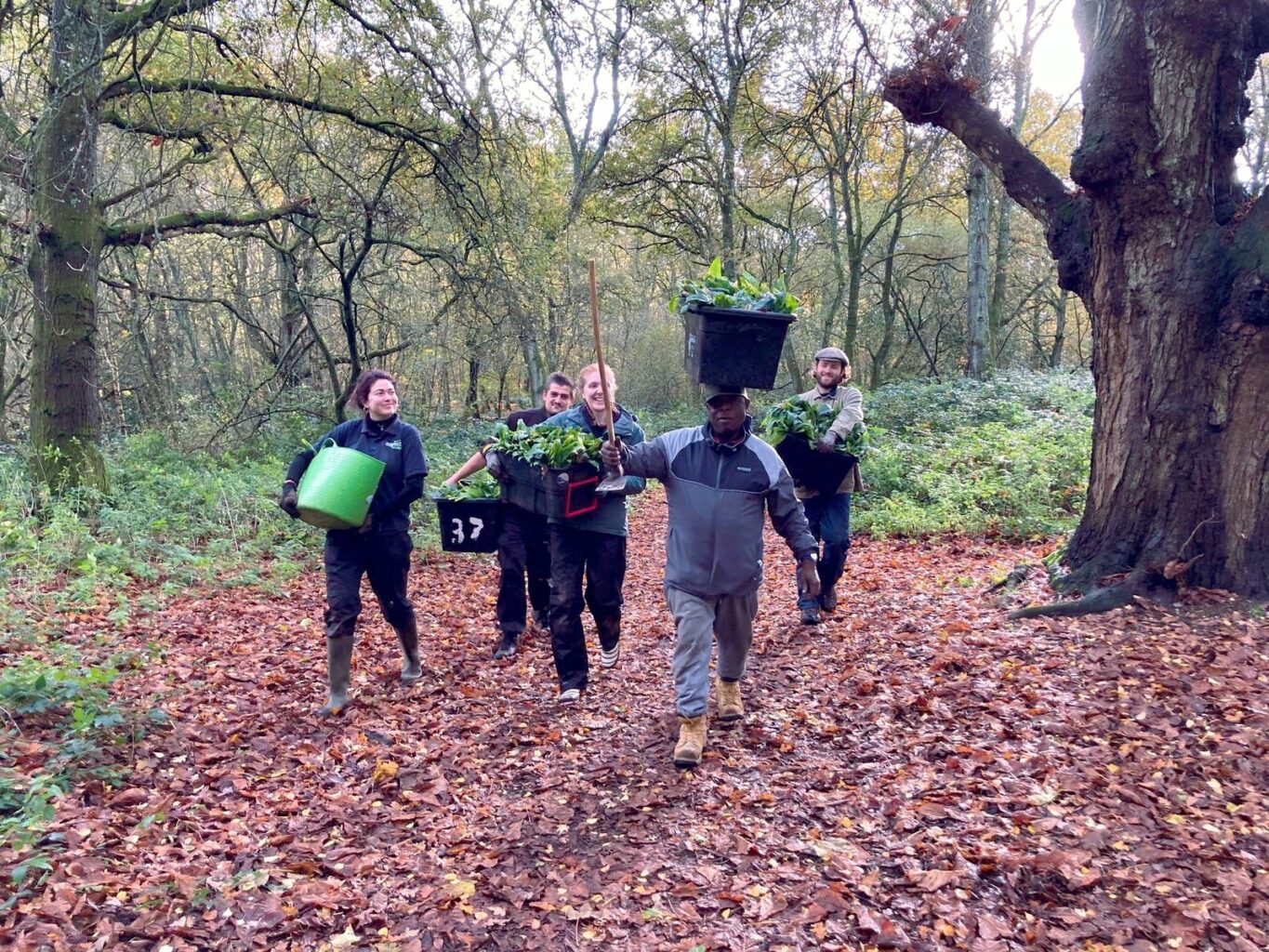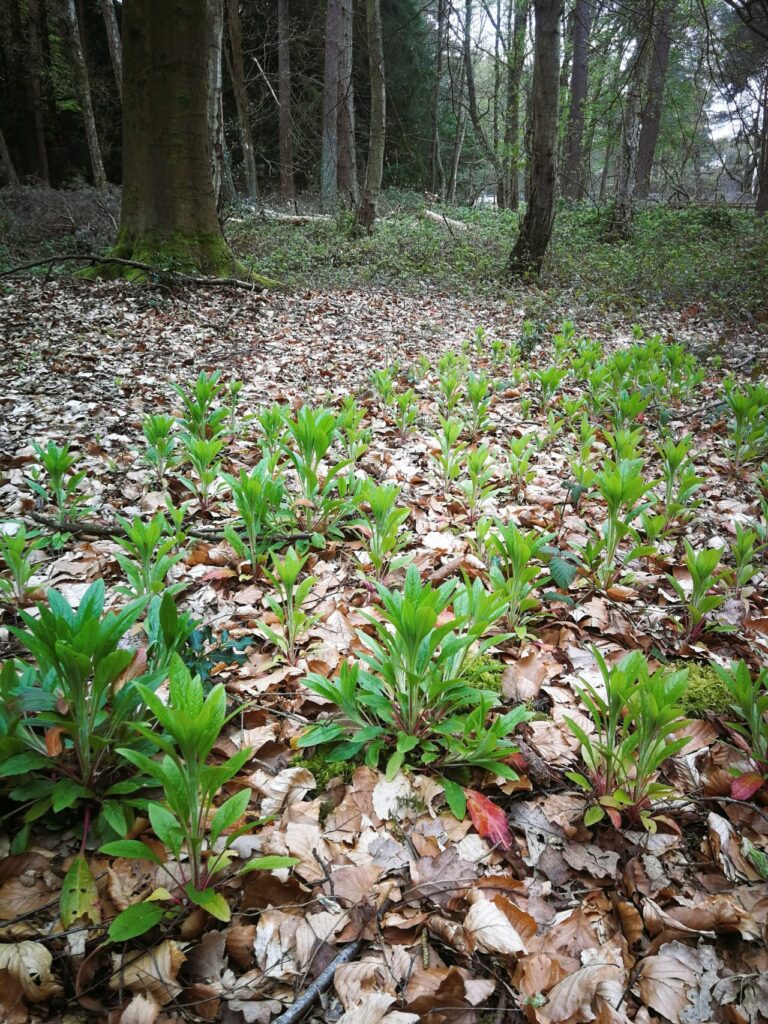Safeguarding rare plants – a case study in translocation by Aspect Ecology
July 2023
Schedule 8 of the Wildlife & Countryside Act 1981 (as amended) lists a number of plants protected from sale, picking and destruction, and typically applies to some of the UK’s rarest species. So, imagine our surprise when we found an old MoD site with tens of thousands of one such plant! Green Hound’s-tongue (GHT) 𝘊𝘺𝘯𝘰𝘨𝘭𝘰𝘴𝘴𝘶𝘮 𝘨𝘦𝘳𝘮𝘢𝘯𝘪𝘤𝘶𝘮 (pictured) is a member of the Borage family, much rarer than its sister species Hound’s-tongue 𝘊𝘺𝘯𝘰𝘨𝘭𝘰𝘴𝘴𝘶𝘮 𝘰𝘧𝘧𝘪𝘤𝘪𝘯𝘢𝘭𝘦. It appeared we had stumbled across one of its strongholds and an example of how rare plants can, on occasion, become locally abundant when the conditions suit them.
Whilst the population appears to be thriving in woods near Aldershot, its prevalence also extended into the development footprint. A bespoke licence was agreed with Natural England, allowing the plants to be translocated prior to the development of the land, so as to conserve and enhance the local population of GHT.
Over last autumn, we moved 2,500 plants and sowed 30,000 seeds into 30 receptor sites surrounding the development site. This year’s monitoring visits indicate a high site survival rate and good success rate within the seed plots. With GHT settled into its new homes, we are looking forward to checking on the plant’s health and seed production over the summer. Overall, GHT has expanded in range and numbers which is pleasing to see.
Follow Aspect Ecology on LinkedIn for all our latest news LinkedIn Page




